A new year, starting quite differently to last year. Last January I outlined a plan for the year with the goal of submitting my PhD thesis by December 1st. I submitted on the Winter Solstice… close enough 🙂
‘For examination, PhD thesis final drafts should be submitted to supervisor in a car park at the back of the building at noon on the winter Solstice’ @catherinecronin @nuigalway pic.twitter.com/oLasJPPT5O
— Iain MacLaren (@iainmacl) 21 December 2017
current status: Thesis Submitted!
warm thanks to all who offered practical & emotional support, particularly over the past few months. the thesis was written by me but it is built on the work of many amazing scholars and was sustained by friendship & love throughout. thank you!
— Catherine Cronin (@catherinecronin) 21 December 2017
Completing and submitting the thesis left me feeling mostly… exhausted and relieved. The Solstice/Christmas/New Year break has been a wonderful opportunity to recharge, and I look forward to my viva within the next couple of months. So this January it feels like I’m starting afresh — ready to begin a new job and to take on a few new projects. On January 15th, I’ll begin a one-year post in CELT (the Centre for Excellence in Learning and Teaching, here at NUI Galway). I’ll coordinate and teach a postgraduate Teaching & Learning module, contribute to professional development courses, and get involved in other projects related to my open education research. So before all that, I’m taking a cue from Lorna Campbell’s wonderful year-in-review post, summarising some highlights of the past year.
2017: year in review
Spring 2017 was a time of travel and conferences. In March I spent nearly two weeks in Cape Town participating in the Open Education Global Conference and the associated GO-GN workshop. I’d wanted to attend #oeglobal for a few years and it exceeded even my high expectations — a truly global perspective on open education past/present/future. The conference prompted a long reflective blog post and new ideas for my research, which I plan to share at #oeglobal 2018 (and in future blog posts!).
The 3-day GO-GN workshop for open education PhD researchers took place immediately preceding #oeglobal. It’s difficult to describe the power and impact of this workshop for me, and indeed for all of us who participated. To share research and deep reflections on the research process with open researchers from around the globe (six continents) was a powerful experience in itself. The creative and sensitive leadership of the OER Hub (Bea de los Arcos, Beck Pitt, Rob Farrow, Martin Weller, and Natalie Eggleston) facilitated the creation of a strong and lasting community. The GO-GN network is active throughout the year — a wonderful resource for all open education researchers and practitioners.
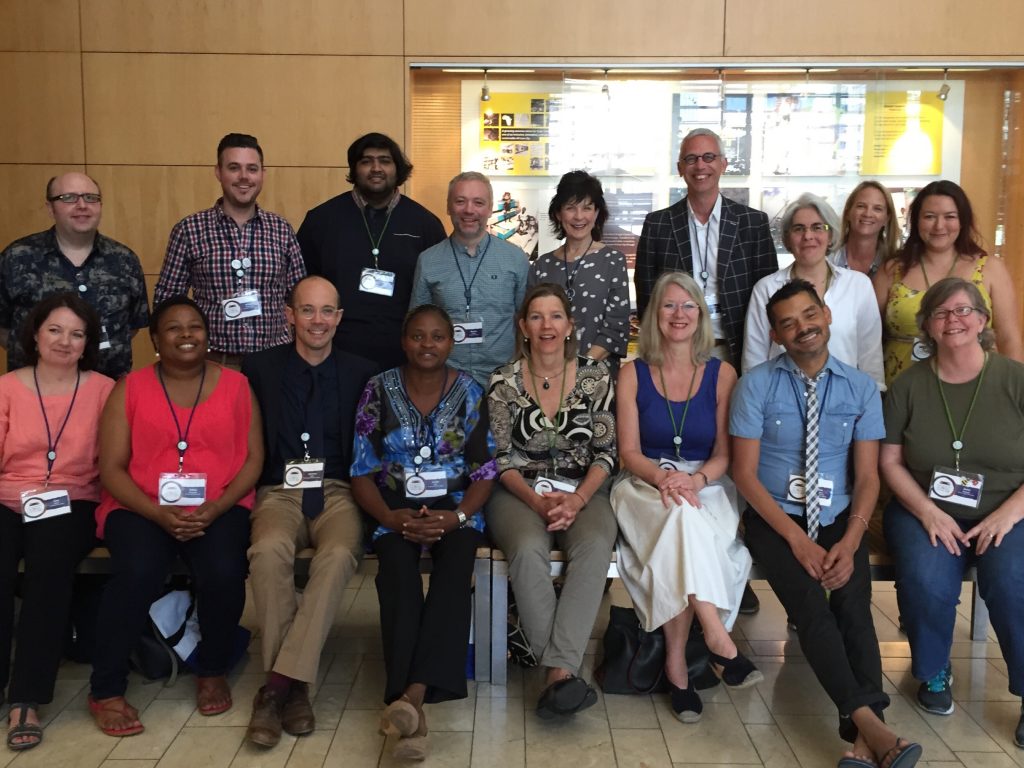
During my time in Cape Town, I was honoured to spend a day at CILT (the Centre for Innovation in Learning and Teaching) at UCT. Work by CILT researchers such as Laura Czerniewicz, Cheryl Hodgkinson-Williams, Glenda Cox, Sukaina Walji, Cheryl Brown (and many more) has been a touchstone for me since my first steps into open education. I have so enjoyed getting to know each of them over the past few years — it was a pleasure and a privilege to visit and to share ideas.
In April, Jim Groom came to Galway! Thanks to funding from the National Forum for the Enhancement of Teaching and Learning in Higher Education, as well as Jim’s generosity, we hosted his workshop at NUI Galway, inviting participants from all other higher education institutions in Ireland. Jim, joined on the day by Mike Cosgrave from University College Cork, explored many facets of Domain of One’s Own and Next Generation Digital Learning Environments. Here’s a full summary of the workshop (Google doc), with links to many resources.
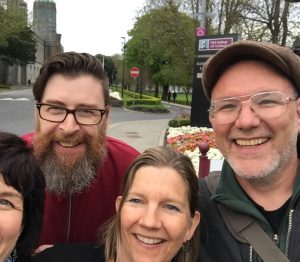
April also brought the OER17 conference in London… another highlight of the year. The OER conference is a gathering/community of open education practitioners and researchers from higher education and beyond. I love this conference for many reasons, but particularly for the way it continually pushes the boundaries — never failing to ask difficult questions and challenge assumptions. The 2017 theme, The Politics of Open, was prescient and made for an outstanding programme. I co-facilitated sessions with both Caroline Kuhn and Laura Czerniewicz, participated in the final plenary panel, and joined one of the many VConnecting sessions. Like many participants, I couldn’t resist blogging afterward 🙂
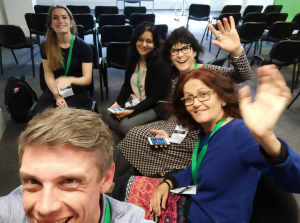
It was, most definitely, a year of two halves. The latter half of 2017 was focused primarily on writing. The ‘key shift’ from blogging and informal writing, even writing academic papers, to writing a thesis was a challenging experience. As the year progressed, and the pace of thesis writing (and re-writing, reviewing, re-writing) increased, I found that I blogged less, as I was in a different mode of writing. I found it difficult to switch back and forth, although I did blog a couple of times about the process, which was helpful.
Although my focus was on writing, I very much enjoyed participating in various conversations and webinars during the year. Some of the highlights for me were the #YearofOpen conversation on Open Pedagogy, the EDEN webinar/conversation on How to Be More Open (with Lorna Campbell, Fabio Nascimbeni, Chrissi Nerantzi, and Lisa Marie Blaschke). I also enjoyed joining staff and students in several webinars based on my PhD research for the Open Education Tuesdays series, Royal Roads University, e/merge Africa, and OpenMed (all links on the Presentations tab above). End-of-year highlights included joining the NetNarr students in an Open Research (#ResNetSem) webinar facilitated by Alan Levine, and a visit by Laura Czerniewicz to CELT at NUI Galway in November. So many wonderful conversations!
Pleasures of the year included a week of reading in the sun in Portugal…
reconnecting with the best of friends in Galway…
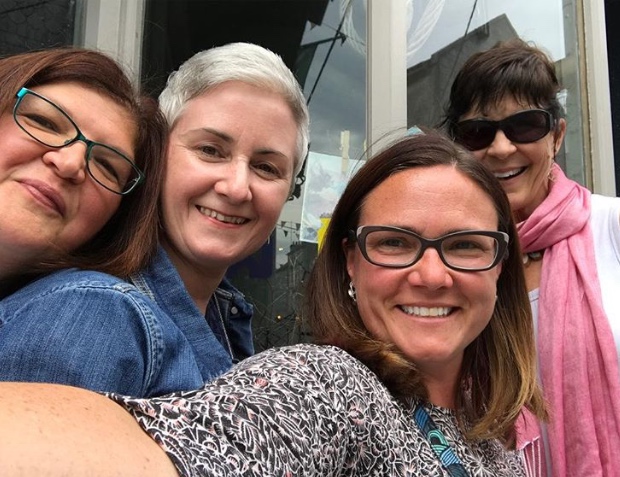
making new friends and memories in Cape Town…
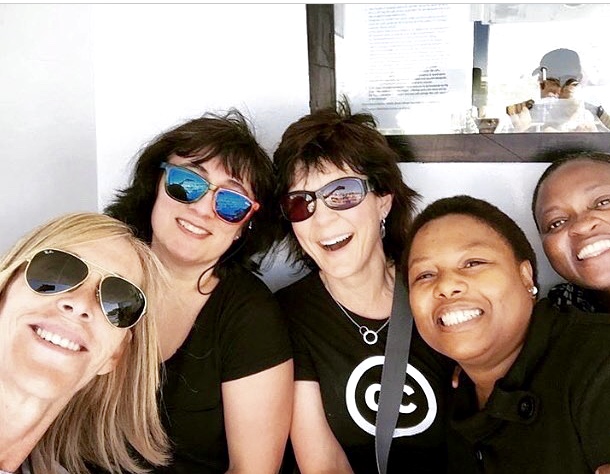
and being in their company for one of the most humbling and unforgettable afternoons of my life, on a tour of Robben Island…
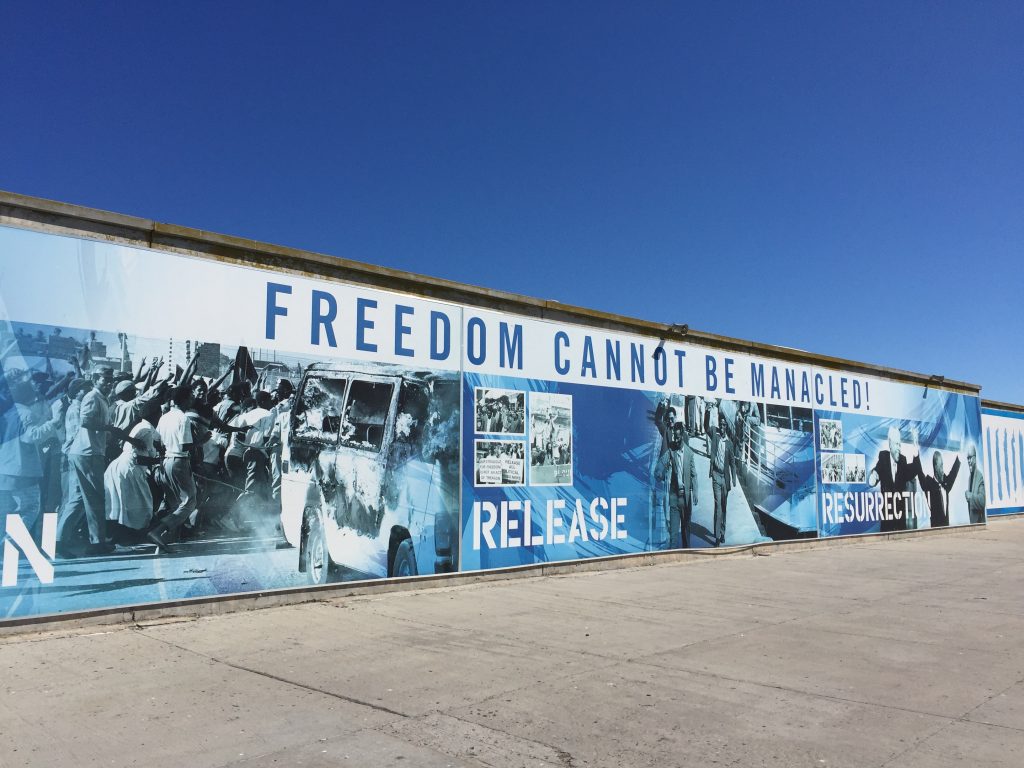
I am grateful for all of the special times of 2017 with family and friends in Kinvara, Galway, Cork, Dublin, London, Edinburgh, Lochmaben, Estoril, Lisbon, and Cape Town.
Here’s to more wonderful work, more equality, more resistance, and more love and justice in 2018.
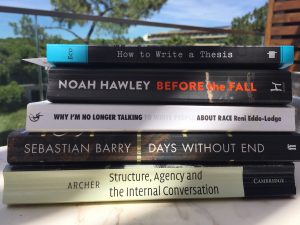
One thought on “2017/2018, the turn of the year”